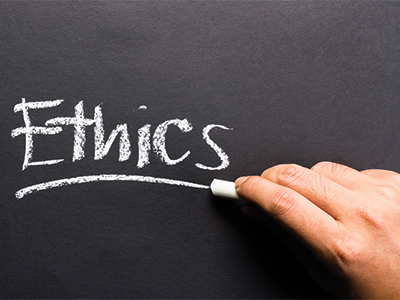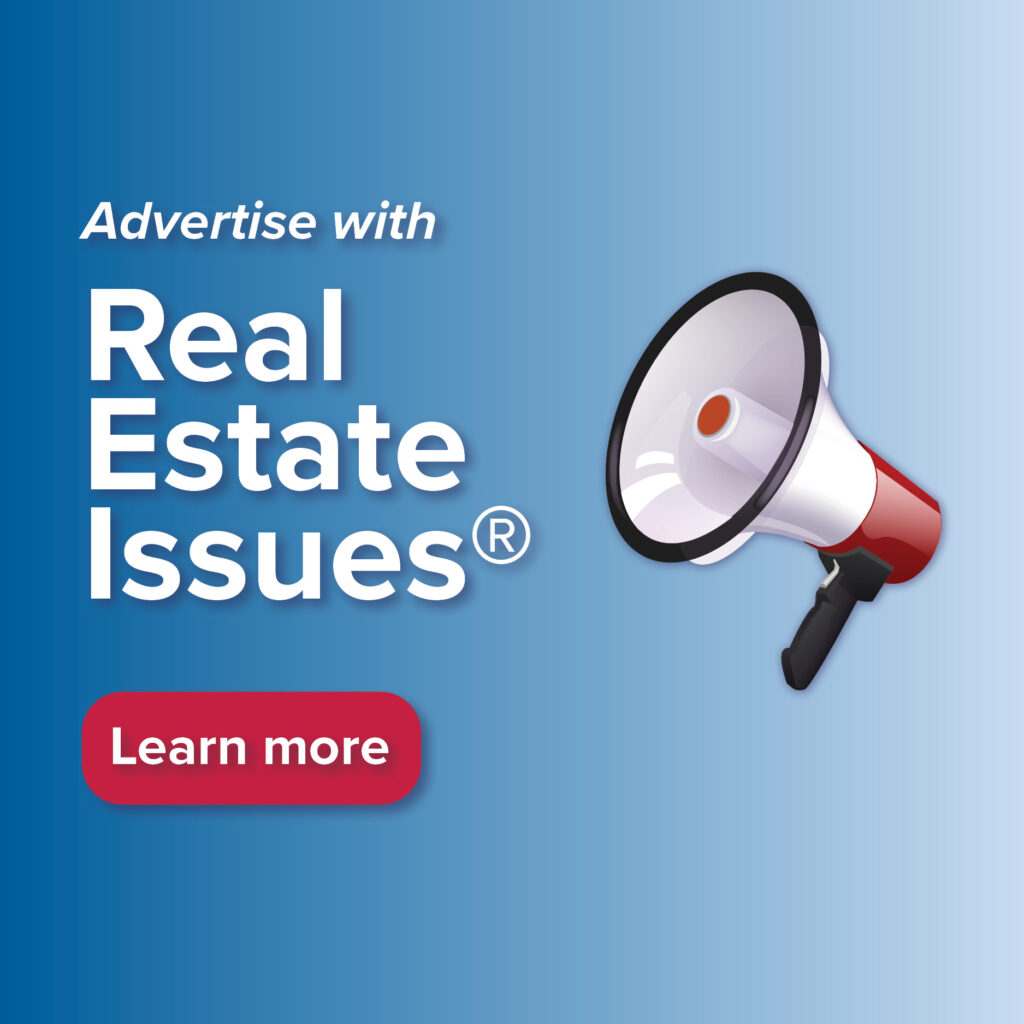Ethics: At the Core of Real Estate Education and Practice
This piece is continued in Volume 44, Number 2, “Real Estate Ethics in Practical Applications”.
This is the first part of a two-part consideration of the topic of ethics as an element of real estate education and a foundational element in sound real estate practice. In its original form, our discussion was a single essay. But due to its length, editorial considerations suggested that dividing the discussion into individual parts focused sequentially on, first, education in real estate ethics and, second, on the deployment of ethical thinking and behavior in real estate practice would be helpful to readers. That said, we would like to stress that the two parts are inextricably linked as components of one whole. Serious study in the field of ethics assists practitioners in making real estate judgments and decisions that are integral to the day-to-day practice of people in the property arena, whether as investors, developers, managers, service professionals, or any other of the myriad particular roles comprising this vital industry. Also, in a complementary way, the actual thinking and behavior of practitioners is what takes ethical discussion from the abstract realm and provides tangible content for classroom learning. It is the conviction of the authors that serious and systematic study of ethics can carry significant benefit to real estate as an academic field as well as a field of practical endeavor.
Real estate is a large and growing industry with an increasingly acute need for sophisticated participants. Over the past four decades, this field laid an important foundation in academic research, and has a thirst for professional/academic collaboration that is only moderately satisfied at present. Thankfully, the number of colleges and universities including real estate as a field of study is on the rise, with dozens of schools now offering graduate degree education in addition to professional courses in various licensure and continuing education requirements mandated at the state level.
Ethics Belongs in Core Body of Knowledge
Many real estate professional organizations, as well as the licensing authorities, recognize a need to address questions of ethics as part of an adequate foundation for working in this area of business. The Real Estate Board of New York (REBNY) specifies that all commercial and residential broker-members complete a mandatory ethics course as a condition of membership.1 All 1.3 million members of the National Association of REALTORS® are required to complete approved courses in ethics during a two-year cycle to maintain membership, courses which may be provided as a classroom experience, through correspondence courses, home study, or online.2 The formal course of studies provided by the CCIM Institute for its professional designation includes an online ethics course, with quizzes and a final examination, which must be passed to earn the CCIM pin.3
Other industry associations, similarly, ask their members to subscribe to written codes of ethics. The Urban Land Institute, for instance, requires that applicants commit to a ten-point code of ethics as a condition of membership.4 The National Association of Home Builders loftily demands that its members “pledge allegiance to [seven] principles and policies” enumerated in the code of ethics it affirms.5 The Appraisal Institute publishes a formal code of ethics including definitions, canons (or statements of ethical principles), and specific ethical rules (with explanatory comments) that are binding on its members, candidates, and their affiliates and are enforceable by remedial or disciplinary action.6
The Counselors of Real Estate identifies “an uncompromising commitment to high ethical standards” as a core organization value, with invitation to membership and continued participation in the association contingent upon upholding this value in professional practice.7
Concern for the application of ethical standards across the global real estate industry has prompted the formation of an International Ethics Standards Coalition of 135 organizations, which has produced a framework for such standards “for those operating in the land, property, construction, infrastructure, and related professions.” 8
Many students in university real estate programs aspire to careers at financial firms. Here, too, ethics requirements are part and parcel of the work environment. Employees at JP Morgan Chase are charged with “fully understanding and complying with” its detailed Code of Ethics, designed to promulgate the values of integrity, fairness, and accountability among its 240,000 workers.9 At Apollo Commercial Real Estate Finance, a New York Stock Exchange-listed REIT, staff are asked to annually certify in writing that they have read, understood, and are in compliance with a Code of Conduct that explicitly notes that “it is the Company’s intent to exceed the minimum requirements of the law and industry practice. Mere compliance with the letter of the law is not sufficient to attain the highest ethical standards.” That Code further recognizes that while the written document is a critical foundation for the firm’s reputational asset, “no code of business conduct or ethics can effectively substitute for the thoughtful behavior of an ethical officer, director or employee.”10
The desiderata of advanced university education in the field of real estate may be understood as addressing four simple but critical questions.11
- What do graduates need to know?
- What do graduates need to know how to do?
- How can graduates exercise mature judgment in life and business?
- How can graduates prepare to function as responsible leaders in the larger society?
Given the widespread recognition throughout the real estate field that ethical issues require the attention that has given rise to the above-cited codes of standards, principles, and conduct, it should be clear that education in ethics is not a peripheral issue for real estate programs. It should be considered part of the core “body of knowledge” that students must address. Yet many curricula lack a course devoted to ethical considerations in the real estate field, most particularly a course that would provide a grounding in ethical thinking at the level appropriate to graduate students. This gap is one that the real estate academic community should fill with much-needed enhancements to our offerings to students, and also as a distinct research field generating applied outcomes pertinent to the real estate industry.
Ethics Education is Integral to Applied Professional Curricula
There are many in the academic community who hold that ethical considerations apply across the entire range of the curriculum, and that discussions of ethics should be incorporated in courses covering theory, practice, and technical analysis. No doubt students would benefit from exploring ethical issues as they might apply in both core courses and electives. There are, however, two critical deficiencies in such an approach. First, in the process of selecting from a course syllabus that is often already overcrowded, professors may relegate ethical decision making to the “nice to do, but not essential to the stated curriculum” bin. Second, for many professors there is a sense that their particular field of competency lies in real estate practice and technique, and that they are at best “informed amateurs” when it comes to the teaching of ethics.
That said, a poorly designed ethics curriculum which simply concentrates the study of ethics into one focused set of lectures could lead the students to the conclusion that ethics are an “add on” or “last step” in the overall real estate investment or development process. Instead, students must come to appreciate ethics as a series of value-based habits that should guide participants at each and every step. We argue, therefore, that a well-rounded graduate education in real estate not only demands a systematic study of ethics, but a thorough and practical demonstration of how to apply these lessons to real estate decision-making and business activity.
This is, for one thing, a standard practice in most professional education, especially in fields with clinical applications. No doctor, for example, can be truly prepared to practice without a grounding in medical ethics. A review of law school curricula will readily show specific courses in professional responsibilities and ethical values, usually required as a condition for graduation. Those pursuing a Master’s Degree in Social Work similarly need to learn the values and practices guiding work with individual clients and groups.
For business schools, courses in corporate social responsibility (CSR) are increasingly common. The Yale School of Management requires students to take at least one course that “focuses on leadership in a particular industry or look at the major ethical and societal challenges that leaders must address.”12 MBA students at Stanford are required to take the Ethics in Management course and can also choose from several electives in ethics.13 The University of Michigan’s MBA program has long emphasized business ethics and social and environmental responsibility.14
A graduate program that does not provide a similar exploration of the ethical principles and practices in real estate is missing a component that is deemed integral to “mastery” in other fields.
It should be obvious, though, that this is not merely an “academic” matter. Ethical knowledge and (if we can so describe it) ethical “skill” are consequential in real estate practice. No more potent evidence can be adduced than the two most recent catastrophes involving real estate, namely the collapse of the savings and loan industry in the late 1980s, and the subprime mortgage debacle that triggered the Global Financial Crisis of 2008 – 2009. Neither of these market failures came about because real estate leaders (inclusive of the bankers providing their funding) didn’t have technical skill or didn’t know their way around numbers. For the most part, the unwitting (or sometimes all-too-witting) architects of the crisis were exceptionally skilled in the manipulation of the levers of financial engineering. Rather, the failures were in the inability or unwillingness to grasp the consequences of behaviors that danced on or over the edge of responsibility. Prudential judgment was lacking, at the very least. And even if the principal actors avoided legal punishments, it should be clear that the ability to stay out of jail is not the standard of moral probity.15
Some Fundamental Considerations for Real Estate Leaders
The very complexity of modern business, including but not limited to real estate, presents a real temptation to simplify (indeed to oversimplify) the notion of ethical standards. That temptation can lead to two poles of misunderstanding, either of which provide a convenient excuse to avoid a systemic look at ethics as part of a real estate curriculum.
The first misunderstanding is that ethics is too simple to deserve serious study in an already stretched curriculum. Ethics is presumed to be a private matter, and one learned “at our mothers’ knee.” Right and wrong are intuitive to anyone with a conscience, and the code of the Boy Scouts is a reasonably sufficient summary: to be prepared to do one’s duty and to embrace a list of principles such as trustworthiness, loyalty, helpfulness, courtesy, kindness, cheerfulness, thrift, and reverence. Many discussions about ethical education have a launching pad in the literature exploring moral development, beginning in childhood, pioneered in mid-20th century cognitive psychology by such figures as Piaget (1932) and Kohlberg (1958). No one would want to denigrate the Golden Rule (“Do unto others as you would have them do unto you”) or its more philosophical formulation in Immanuel Kant’s Categorical Imperative (“Act according to the maxim that you would wish all other rational people to follow, as if it were a universal law.”).16 If such simple maxims summarize the core of morality, why spend valuable class time on what is intuitive to any thoughtful student?
The second and polar opposite misunderstanding is that ethics is an unduly complicated affair, not a field where clarity can be achieved nor one where, upon investigation, rational agreement is likely. Ethics is considered subjective, culturally relative, a topic that has given rise to centuries of arguments which have never been satisfactorily settled.17 The gap between abstract principles and pragmatic choices is too wide to be bridged, unless some dogmatic authority is invoked and we are far from trusting dogma at this point. So (to play on the old joke about economists) if you could lay a hundred ethicists end to end, they still wouldn’t reach a conclusion so what is the point in leading a class of real estate graduate students into such muddy territory?
We regard these two extreme – and incompatible – positions as weak rationalizations merely serving to avoid an uncomfortable look at the ethical practice of real estate in contemporary business. That practice has its ambiguity, to be sure, but there is an important alternative to avoiding the question as being too simple or too complicated. That alternative is probing moral dilemmas with intellectual honesty, weighing choices and their consequences on individual persons and groups of persons, and listening to the experience of thoughtful leaders who have wrestled with the range of ethical issues that have arisen in their real estate business practices.
As we will discuss in the second part of this paper, not only do students respond to issues of ethical choice in real estate with deep and lively interest, but framing the educational project in the form of inductive reasoning from specific case histories provides an important bridge between classroom learning and high-level professional practice. This can be seen both in the application of high standards in the context of internal business management and in evaluating the impact of real estate within the larger society.
Real estate, after all, exists in shared space, typically houses shared activities, and is valued in the marketplace based upon shared measures. Ethics are not idiosyncratic – purely private values are pathological.18 Such expressions of higher values as mentorship, pro bono publico projects, ESG investing, and angel venture capitalism should be considered within the scope of real estate practice, not as nice but unessential exceptions. We owe it to our students to place such considerations before them.
Real estate functions within and for groups of people. As part of a larger community, real estate owners, managers, and service professionals must be ethical citizens. Real estate education should be contributing to our understanding of such civic responsibility, based on its origins and goals in a morality which we are always striving to better attain. •
Endnotes
1. Real Estate Board of New York (REBNY), “Code of Ethics and Professional Practice,” December 19, 2017. Accessible on the web: https://rebny.com/content/rebny/en/about/code-of-ethics.html ↩
2. National Association of Realtors®, “Code of Ethics and Standards of Practice – Effective January 1, 2019.” Accessible on the web: https://www.nar.realtor/about-nar/governing-documents/code-of-ethics/2019-code-of-ethics-standards-of-practice ↩
3. CCIM Institute, “Code of Ethics and Standards of Practice of the CCIM Institute of the National Association of REALTORS®”. Accessible on the web: https://www.ccim.com/membership/code-ethics-and-standards-practice/?gmSsoPc=1 ↩
4. Urban Land Institute, “Code of Ethics” 2018. Accessible on the web: https://uli.org/code-of-ethics/ ↩
5. Accessed through the website of the Builders and Remodelers Association of Boston, which cites the NAHB Code of Ethics in full. http://www.bragb.org/code-of-ethics.html ↩
6. Appraisal Institute, “Code of Professional Ethics and Explanatory Comments,” effective May 10, 2018. Accessible on the web: https://www.appraisalinstitute.org/professional-practice/ethics-and-standards/code-of-professional-ethics/ ↩
7. Counselors of Real Estate website, https://cre.org/about/ ↩
8. Those standards were promulgated in December 2016, as “International Ethics Standards: An ethical framework for the global property market.” Accessible on the web: https://ies-coalition.org/standards/ ↩
9. JP Morgan Chase & Co., “Code of Conduct,” June 12, 2017. Accessible on the web: https://www.jpmorganchase.com/corporate/About-JPMC/document/code-of-conduct.pdf ↩
10. Apollo Commercial Real Estate Finance, Inc., “Code of Business Conduct and Ethics,” AMR #213519-v2, adopted September 25, 2009. Accessible on the web: https://www.apolloreit.com/stockholders/corporate-governance ↩
11. These questions were delineated in Fordham University’s application for approval of its Masters of Science in Real Estate program, submitted in May 2017. ↩
12. Details available on the web: https://som.yale.edu/programs/mba/curriculum/leadership-development ↩
13. Details available on the web: https://www.gsb.stanford.edu/programs/mba/academic-experience/curriculum/first-year-curriculum ↩
14. See the university’s website: https://michiganross.umich.edu/alumni/dividend/fall2015/building-blocks-business-ethics ↩
15. One of the co-authors of this paper assigns Michael Lewis’ The Big Short, Norton (New York, 2010), with the instructions that the students should make a list of the number of items they find ethically problematic. This assignment accords grading points to students based on the issues they identify, and these issues, in turn, form the basis for class discussion. ↩
16. John Rawls, in A Theory of Justice (Harvard University Press, 1971), develops a Kant-like argument by asking us to consider any question of fairness as though we were ignorant of whether we would be advantaged or disadvantaged by the outcome of an action. See his discussion at pp. 136 – 147 for details of Rawls’ description of what he calls “the original position” in considering such a question. ↩
17. As far back as the time of Cicero (106 – 43 B.C.) this has been lamented, vividly in the oration against Cataline with its famous epigram, “o tempora, o mores”. It has been suggested that taking care with language may offer a solution, designating “morality” as a universal category and “ethics” as a more determined concept recognizing the norms of a particular time and place. Accepting such a distinction, however, just makes more acute the dilemma posed to a decision-maker: what should I do? Even in a merely legal sense, excusing some behaviors as being justified by local practice is explicitly dismissed by legislation such as the Foreign Corrupt Practices Act on the books since 1977. ↩
18. This is well worth pointing out in an era when frequently we hear claims that “what is true just means ‘what is true for me’.” Karl Jaspers in his treatise on General Psychopathology (Johns Hopkins University Press, English edition 1997; German edition Springer-Verlag 1959) identifies such self-referential values as evidence of mental disease: “We exclude concrete reality from our consciousness. We believe that what we wish is real and what we do not wish is unreal… Pyschosis achieves a flight from reality.” (p. 324) [Italics in the original text]. ↩


 Photo: patpitchaya/Shutterstock.com
Photo: patpitchaya/Shutterstock.com



